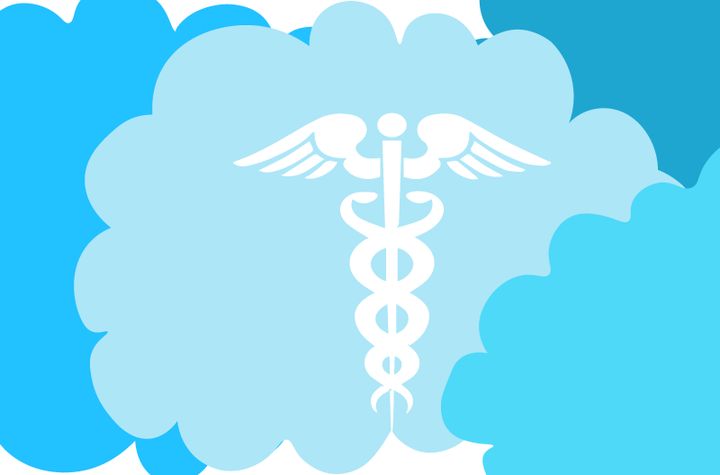
Cloud computing has changed the way we do practically everything, giving us access to information and services at the drop of a hat, no matter where we are.
Instead of using your particular computer to run software, cloud computing lets you make use of the work being done by other computers. If you use most of the Internet, apps, or streaming video services, you're making use of cloud computing.
Unfortunately, the healthcare industry has been slow to take advantage of cloud computing and other new technologies. There are some good reasons for this, including the need to keep patient data private and the many laws and regulations around data privacy. But many believe that healthcare on the whole is suffering from a lack of modern technology, preventing physicians from doing their jobs as well as they could.
Benefits of Cloud Computing in Healthcare
In general, cloud computing provides better access to information and services than a local system. That's why it's much more useful to search the Internet rather than just the files on your computer.
The healthcare industry can use cloud computing in many of the same ways that other industries have. The most obvious benefit is the ability to more easily store, search, and exchange patient records.
Healthcare providers need to be able to share information about patients quickly and accurately, a difficult job in the pre-digital era. For the most part, every provider was collecting their own sets of patient data and storing them in different, sometimes incompatible ways. This slowed down the speed of information exchange and led to many errors, which are very problematic when you're dealing with important medications and treatments.
As the industry has transitioned to incorporate cloud computing and other new technologies, electronic medical records (EMRs) have become more widely used. EMR's can be more easily stored and exchanged when hosted on the cloud, where the service can be run by professionals. It's also much less expensive to maintain digital records, so this should help reduce costs for both the providers and the patients.
EMR's are easier to access, but this also means that they're potentially more vulnerable to hackers and data theft. The healthcare industry is well aware of this problem, however, and security systems are being created and put in place to make sure patient data stays private.
Cloud computing also provides many options for the administrative side of healthcare, with cloud-based apps for practically everything: financial, HR, operational functions, communication, and administration itself. These services should help make healthcare providers more efficient by providing them with the right tool at the right time, all while cutting costs.
How Popular is Cloud Computing in Healthcare?
Healthcare providers around the world spent an estimated $4.2 billion on cloud computing in 2004, and this number won't be going down any time soon. It's expected to increase by 20% every year until 2020, when it will reach $12.6 billion. With this much money going into the project, there must be some fundamental changes in the works.
A couple of years ago the 2014 HIMSS Analytics Cloud Survey studied the state of cloud computing in healthcare and came to a number of interesting conclusions.
It found that 83% of healthcare providers were using some kind of cloud service, and most of the rest were planning to. The most common uses of the cloud were for “Hosting Clinical Applications and Data,” “Health Information Exchange,” and “Backups and Data Recovery.” Most of the applications used were for administrative purposes.
Providers who favor the cloud say they do so because it's quick and easy to deploy, it costs less than traditional IT, and it provides a way to find employees or experts when understaffed. For those who haven't been using cloud services, security concerns are the main thing standing in their way. They also may have too many problems converting their current systems to the cloud, or are worried about the cloud not being available when they need it.
Cloud computing has changed the world in countless ways, and it's slowly transforming healthcare as well. It may be happening too slowly for some, but eventually the need for fast, accurate data will help encourage a healthcare industry that seems like a truly modern innovation. The cloud has the potential to help physicians deliver better care to more patients, all at a lesser cost.
HeroX is hosting the CHIME National Patient ID Challenge, a contest to create a more sensible and efficient way to identify patients. If you some great ideas to help improve our healthcare system, head on over to our challenge page for a chance to win $1,000,000!








